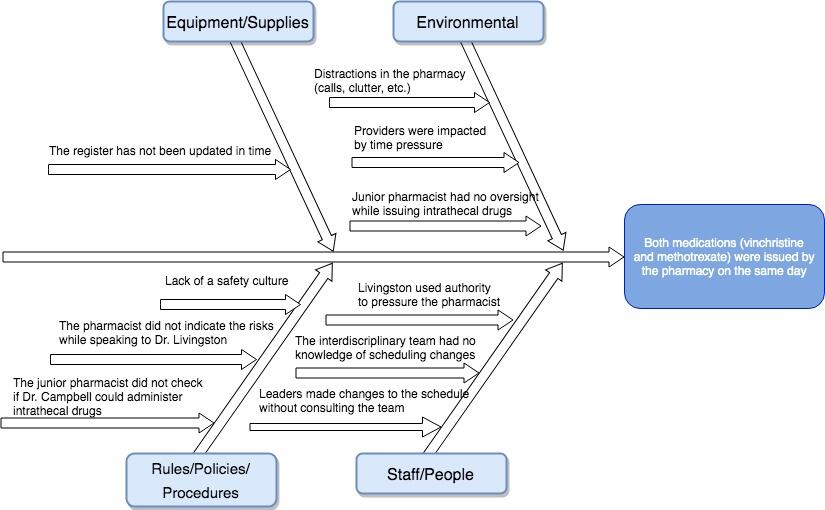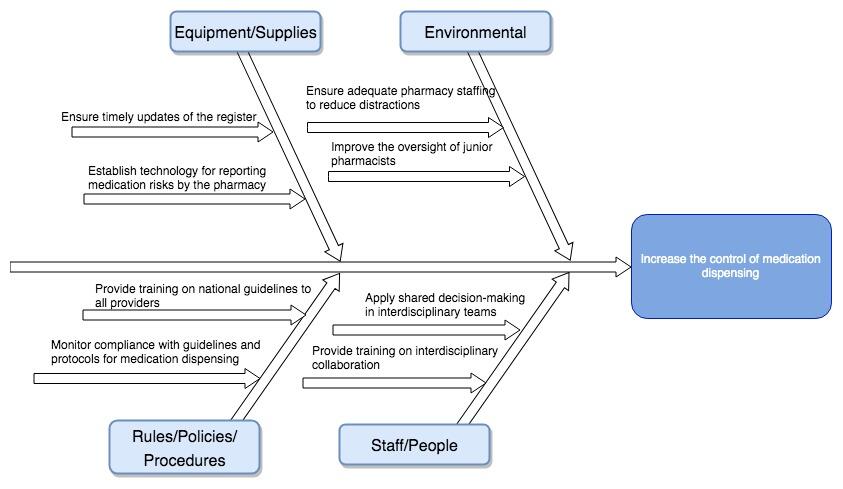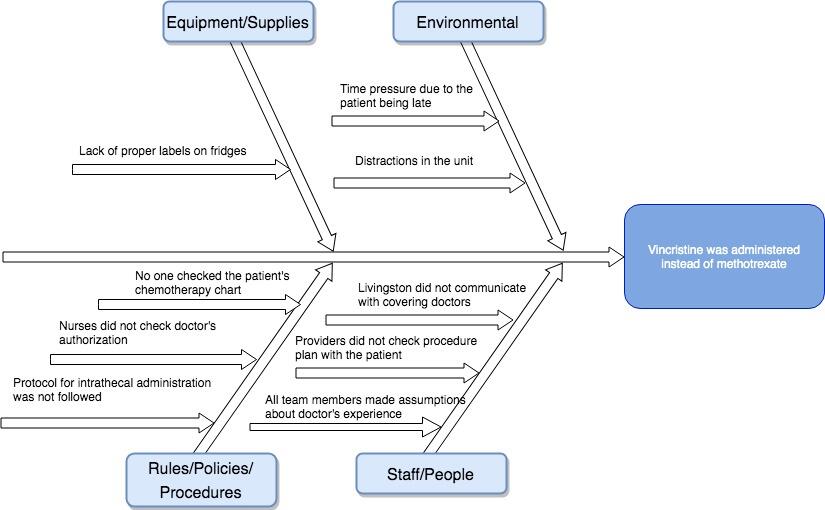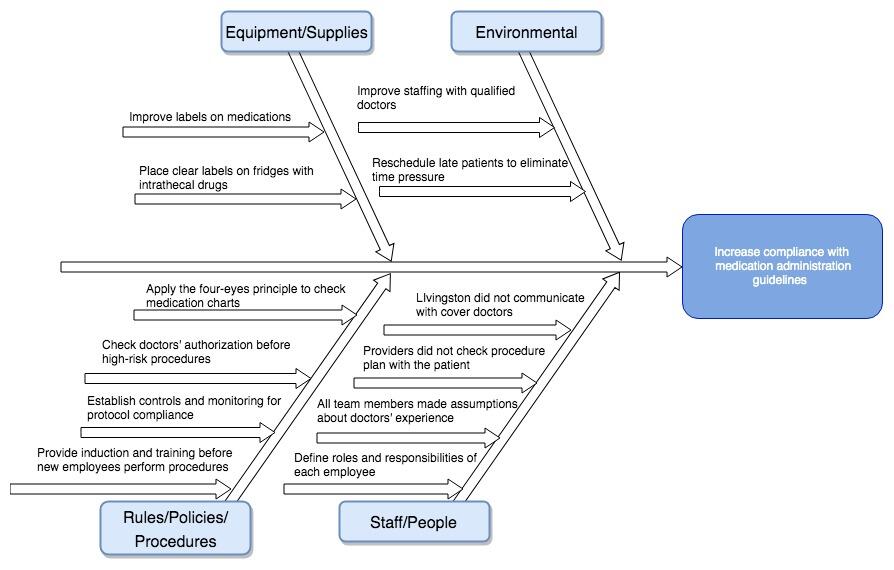Introduction
In the present case, two primary system failures were caused by medication dispensing and administration errors. First, the pharmacy issued the two chemotherapy medications prescribed to the patient on the same day. One of the medications was intravenous, and the other was intrathecal. However, the national guidelines require pharmacies to obtain written proof that intravenous medications had been given before dispensing intrathecal drugs.
Second, the doctors injected vincristine intrathecally instead of methotrexate, leading to severe complications for the patient. The two system failures indicate problems with compliance with national guidelines and local procedures in the unit. Both issues can be addressed through comprehensive interventions targeting errors’ root causes.
Solution 1: Increase the Control of Medication Dispensing
Safety is among the key QSEN competencies discussed during the course, and hence, it is crucial to ensure that there is adequate oversight of medication dispensing procedures. Research shows that pharmacists play a key role in preventing medication errors, such as preventable adverse drug events and dispensing mistakes (Wang et al., 2015). In the selected case, the pharmacist could have prevented the error by informing about the risks and participating in decision-making. Hence, in order to increase the control of medication dispensing, it important to address the barriers to pharmacists’ involvement by using shared decision-making, training in interdisciplinary collaboration, and reporting of medication risks by the pharmacy (Figure 2).
It would also be useful to ensure adequate staffing of the pharmacy and timely updates on the register so that the dispensing process would go more smoothly, and there would be no distractions (Figure 2). Additionally, leaders of the hospital should also address compliance with the policy on all levels by offering training on national guidelines and creating controls to monitor compliance with guidelines and protocols for medication dispensing (Figure 2). Goldspiel et al. (2015) advise designing checkpoints for the entire process of medication dispensing and training pharmacists to follow each checkpoint carefully.
Solution 2: Increase Compliance with Medication Administration Guidelines
Here, the critical QSEN competencies to consider are patient-centered care, collaboration and teamwork, and safety. Improving staffing with qualified doctors and rescheduling late patients to eliminate time pressure would help to reduce environmental concerns leading to errors (World Health Organization, 2016). Additionally, it would be helpful to enhance interdisciplinary teamwork and communication through training and involve patients in procedure preparations (Figure 4). Roles and responsibilities of each employee should be clearly defined so that it would be possible to enhance oversight (WHO, 2016).
Other possible solutions would be improving labels on medications and placing clear labels on fridges for intrathecal drugs. According to the WHO (2016), such environmental controls may be useful in reducing administration risks. Finally, leaders should take part in enhancing policy and procedure compliance among employees (WHO, 2016). This would require implementing rigid procedures for checking medication charts and doctor’s authorization, as well as adequate monitoring methods (Figure 4). The organization would also benefit from providing induction and training before employees can take parts in procedures.




References
Goldspiel, B., Hoffman, J. M., Griffith, N. L., Goodin, S., DeChristoforo, R., Montello, C. M.,… Patel, J. T. (2015). ASHP guidelines on preventing medication errors with chemotherapy and biotherapy. American Journal of Health-System Pharmacy, 72(8), e6-e35.
Wang, T., Benedict, N., Olsen, K. M., Luan, R., Zhu, X., Zhou, N.,… Shi, L. (2015). Effect of critical care pharmacist’s intervention on medication errors: A systematic review and meta-analysis of observational studies. Journal of Critical Care, 30(5), 1101-1106.
World Health Organization. (2016). Medication errors. Web.